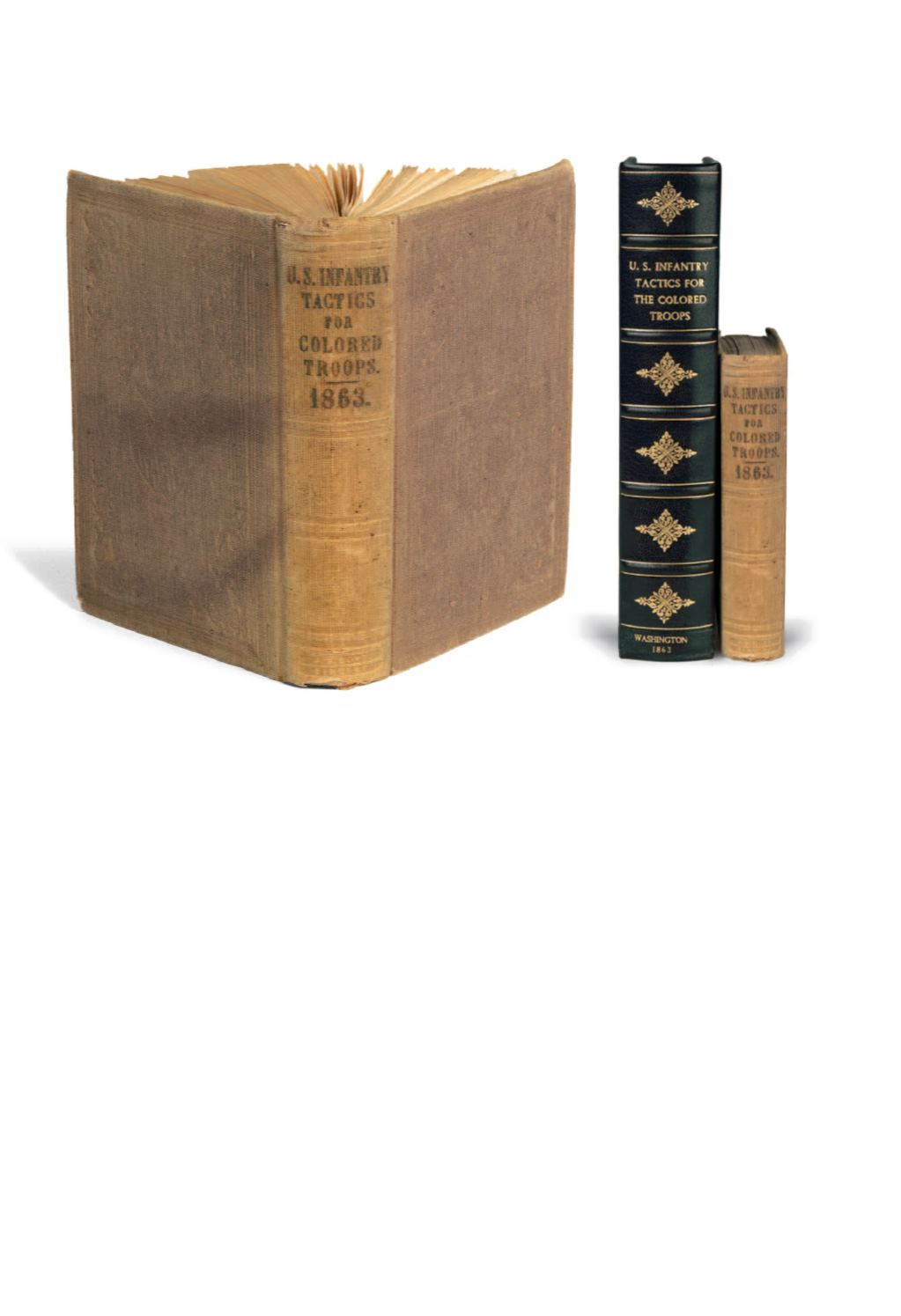

359
●
(MILITARY—CIVIL WAR.)
Infantry Tactics for the Instruction and
Maneuvers of the Soldier, a Company, Line of Skirmishers, and Battalion, for
the Use of Colored Troops.
370 pages and [63] plates, many folding, plus 47 pages of
drum rhythms and bugle calls; lacks general title page, which seems to have never been
bound in. 12mo, original gilt and blind-stamped brown cloth,
OWNERSHIP SIGNATURE OF
HIRAM A OAKMAN
, 1
ST LIEUTENANT IN THE
7
TH MASSACHUSETTS INFANTRY
,
AND
30
TH U
.
S
.
COLORED INFANTRY
. I
N A SPECIALLY MADE GILT MOROCCO
-
BACKED CLOTH CLAMSHELL
CASE
.
Washington, D.C.: Government Printing Office, 1863
[3,500/5,000]
EXCEEDINGLY RARE
.
A COPY
,
WITH A FINE ASSOCIATION
,
having belonged to Hiram A.
Oakman, First Lieutenant with the 7th Massachusetts Infantry, promoted to Lieutenant Colonel of
the 30th U.S. Colored Infantry. Manuals such as this were meant to be literally “pocket-size.” The
pagination is unusual; following 370 pages of text and music [48 pages of drum beats and bugle
calls], there are 63 plates, with erratic numbering. In the original binding, which was once purple, now
evenly faded to reddish brown. This is the first edition of the first and only such manual printed for
the exclusive use of Colored Troops. Curiously, there exists no difference at all between the manual for
use by white troops and this little volume for black troops. The only real distinguishing factor is the
cover, which reads “U.S. Infantry Tactics for Colored Troops. 1863.” This seems to have been more of
a gesture to people like Frederick Douglass, Martin Delany and others in the black community who
had been agitating for the use of colored troops from the outset; something to inspire pride as well as
provide instruction.
ONLY THE SECOND COPY AT AUCTION IN THE LAST
25
YEARS AND ONE
THAT SAW ACTION
.
The 30th Colored Infantry saw action at Fort Fisher, Wilmington and other campaigns, mostly in
North Carolina.









